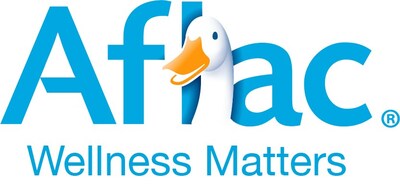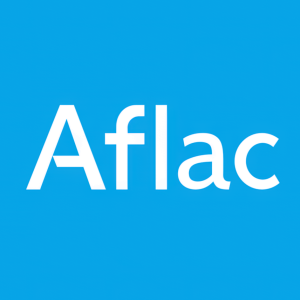U.S. adults say logistics and "feeling healthy" among reasons they duck out of routine wellness visits and screenings
Rhea-AI Summary
Aflac's 2024 Wellness Matters Survey reveals concerning trends in preventive healthcare practices among Americans. 77% of adults admit to postponing important health checkups, with millennials and Gen Z showing higher rates of avoidance. Despite expressing worry about their health, 84% of millennials and 82% of Gen Z delay screenings beyond recommended timeframes. Logistical barriers, such as work conflicts and childcare issues, prevent 58% of millennials from timely screenings. Language is a barrier for 42% of Hispanic Americans in understanding healthcare needs and insurance benefits. The survey highlights the importance of early detection, with 56% of cancer diagnoses resulting from routine screenings. Community and family encouragement play significant roles in promoting preventive care, especially among Hispanic and African American respondents.
Positive
- 56% of cancer diagnoses resulted from routine screenings, emphasizing the importance of regular check-ups
- African Americans are more likely to stay on top of wellness appointments and prioritize annual well visits
- Nearly 7 in 10 Americans are more likely to see a doctor if encouraged by a friend or loved one
Negative
- 77% of Americans admit to putting off important health checkups
- 60% of Americans have avoided common recommended health screenings, up 20% from 2023
- 84% of millennials and 82% of Gen Z delay health screenings beyond recommended timeframes
- 42% of Hispanic respondents indicate language is a barrier to understanding their healthcare needs and insurance benefits
- 70% of Gen Z and 67% of millennials primarily use urgent care or emergency rooms for healthcare needs instead of regular wellness appointments
News Market Reaction 1 Alert
On the day this news was published, AFL declined 2.09%, reflecting a moderate negative market reaction.
Data tracked by StockTitan Argus on the day of publication.
Aflac's Wellness Matters Survey reveals
Millennials and Gen Z say they're focused on health, but are taking a chance by skipping wellness checkups
The study uncovered an alarming 3 in 5 Americans (
Additionally, young Americans say they frequently or always worry about their physical and mental health — even more than other significant concerns such as their social media reputations, getting a promotion at work and politics. However, when it comes to important health screenings, many admit to putting off a checkup beyond the recommended timeframe at least occasionally —
Many aren't listening to their bodies, with
"Feeling healthy" and logistical barriers keep Americans from their doctor
Getting to the doctor is not easy for young Americans, as logistical barriers prevent them from getting health screenings on time — with
When Aflac Senior Vice President and Chief Actuary Thomas Morey was in his mid-20s, he experienced a significant and sudden health crisis, showing that one can never be too young to develop good health habits. The condition kept Morey out of work for nearly two years, and he was in and out of hospitals for 18 months.
"As our study shows, younger people are often less concerned about health care issues than older ones, and the statistics do support the idea that becoming ill is often a function of age," said Morey. "But what I learned is that percentages don't really mean much when it is happening to you. That is why I am a strong proponent of learning how to care for yourself, even when you are feeling strong. Going to the doctor for wellness checkups and recommended screenings is something everyone should strive to do."
Early detection at risk
Surprisingly, survey respondents who have received a cancer diagnosis were more likely to have avoided common health screenings than those who have not, underscoring the importance of regular screenings. Among those diagnosed with cancer,
More than half of Americans report a family history of chronic illness/disease, yet
"Family history matters to preventive care because history and genetics can often help inform the future of our own health," said Morey. "This is why Aflac is also focused on helping consumers be more aware and empowered to start good health habits early and continue to prioritize proactive health care as they age."
Community matters in preventive care practices
In the survey, African Americans (
The survey reinforces how much support matters — and the value of advocating for yourself and the ones you love to both schedule and keep important wellness checkups. Nearly 7 in 10 are more likely to go to the doctor if a friend or loved one encouraged them to go. Hispanic respondents are more likely to report that encouragement is effective. Men also are more likely than women to see a doctor if encouraged by a loved one (
"Life moves quickly, and sometimes, we can lose sight of what's important for good health and wellness — but when you do stop and think about it, what is more important than your health? Taking charge of your health can start when you are young, by making your own wellness appointments and encouraging those you care for to do the same," said Morey. "The Wellness Matters survey reinforces the value of proactive health habits. It also reminds us how much preventive care matters and to take more ownership of our health, regardless of age, gender or ethnicity."
To learn more about the 2024 Wellness Matters survey and to find tips on how to take charge of your own health and encourage others to prioritize theirs, visit Aflac.com/WellnessMatters.
ABOUT THE 2024 WELLNESS MATTERS SURVEY
The 2024 Aflac Wellness Matters Survey, examining attitudes, habits and opinions about health and preventive care, was conducted among a nationally representative sample of 2,000 employed
ABOUT AFLAC INCORPORATED
Aflac Incorporated (NYSE: AFL), a Fortune 500 company, has helped provide financial protection and peace of mind for more than 68 years to millions of policyholders and customers through its subsidiaries in the
Media contact: Jon Sullivan, 706-763-4813 or jsullivan@aflac.com
Analyst and investor contact: David A. Young, 706-596-3264, 800-235-2667 or dyoung@aflac.com
1 2024 Wellness Matters survey
2 LIMRA 2023 US Supplemental Health Insurance Total Market Report
3 2024 Wellness Matters survey results
Aflac's family of insurers include American Family Life Assurance Company of
![]() View original content to download multimedia:https://www.prnewswire.com/news-releases/us-adults-say-logistics-and-feeling-healthy-among-reasons-they-duck-out-of-routine-wellness-visits-and-screenings-302213859.html
View original content to download multimedia:https://www.prnewswire.com/news-releases/us-adults-say-logistics-and-feeling-healthy-among-reasons-they-duck-out-of-routine-wellness-visits-and-screenings-302213859.html
SOURCE Aflac











